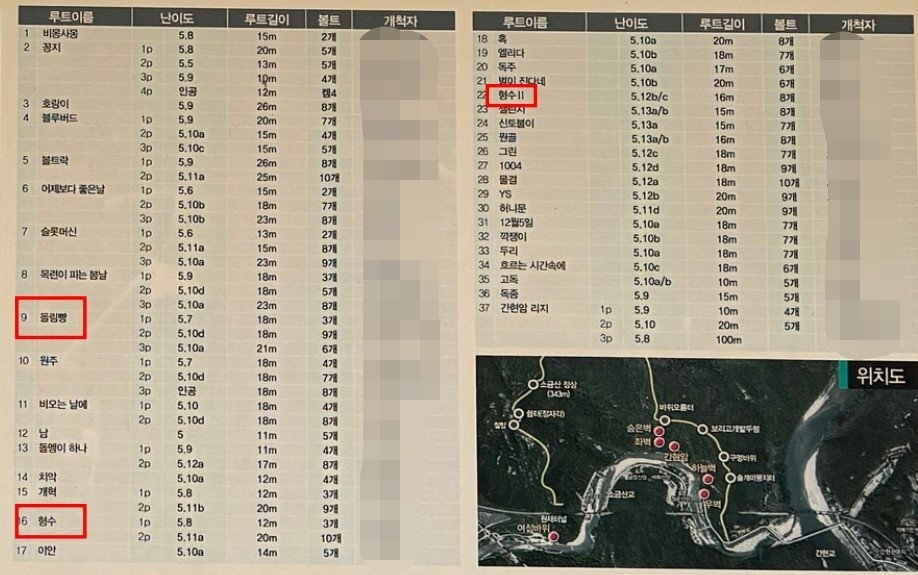
 |
| The names of three rock climbing routes accused of being misogynistic are seen in this undated photo of a sign in a rock climbing park in Wonju, Gangwon Province. (Online Community) |
A popular natural rock climbing park in Wonju, Gangwon Province is being criticized for the names of three of its courses being misogynistic.
The criticism came to light in a report in local weekly Women News on Monday. The report found names such as “Dolimbbang” which can be read as slang referring to “gang rape," “Hyeongsu,” an older brother's wife or "sister-in-law," and "Hyeongsu II."
The names were found on a sign displayed in the park where the routes are located. With about 70 natural rock climbing routes on six cliffs, the park, located two hours away from Seoul, is popular among local climbers.
Typically, rock climbing route names are given by the first person to set them up. Since there is no review process for the names, there is no way to guard against offensive names being made.
The criticized routes were reportedly named in 1993 by the climbers who first found them on the cliffs, whose names are written on the board next to the routes’ explanations.
According to Wonju officials, the city government had been unaware of the problematic names, claiming the routes are managed by volunteer climbers.
An official of the climbers’ club that manages the sign rejected the allegations, saying there had previously been no complaints about the names.
They said the “Hyeongsu” courses were named by a member out of his respect for his sister-in-law, who had been sick at the time.
When it comes to the “Dollimbbang” course, the official said that the name referred to the direction of the route, which makes climbers go around to the side, saying they had never considered it could be interpreted as misogynistic.
According to the initial report, there have been several instances of rock climbing routes being given misogynistic names in other countries such as Canada, where they were eventually renamed.
Many online petitions calling for the courses' names to be changed have been filed at the Anti-Corruption and Civil Rights Commission's E-people website.









